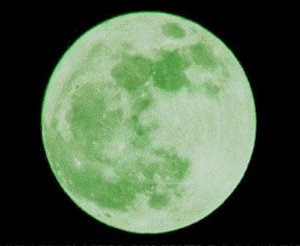Do You Remember A Time When Everything Wasn't Brain-Deadening Trash?
“DJ Khaled, for example, is one of the most influential celebrities on Snapchat. He’s not a millennial by definition, but he creates content that millennials love. Meanwhile, ‘First Kiss,’ a video ad for clothing company Wren, became a bona fide viral sensation on YouTube when it was released in 2014. It featured 10 pairs of strangers kissing for the first time, some passionately while some clumsily. The scene addressed a universal human experience and thus it was relatable and sharable. (Although the video was later considered deceptive by some because the ‘strangers’ were reportedly trained actors, but the inevitable backlash actually contributed to the ad’s success as it got more people talking about the brand.)”
— I am hard-pressed to think of another paragraph that better exemplifies exactly how bankrupt, broken and barren we are as a society than the bit above from this piece on marketers’ obsession with millennials. (Okay, maybe anything from this.) What a stupid world.
Uber But For Napping
“During the ride, the Uber driver, Corey Robinson, 43, of Philadelphia, became tired and asked Mr. Carlos to drive while he slept. Mr. Robinson later woke up and asked why Mr. Carlos was driving so fast. He replied that the police were chasing them, the authorities said.”
— Everyone knows drowsy driving is dangerous, and every twenty-year-old dreams of escaping New York State troopers at a nice 86 mile-per-hour clip. I don’t see the problem here?
David Bowie, "I Can't Give Everything Away"
It is April and I still find myself every now and again catching my breath when I remember that David Bowie’s gone. This is my favorite track from his last album. Enjoy.
New York City, April 4, 2016

★ The rain made scattered little patters in scattered little puddles, in what was beginning as an ordinary spring morning, neither too wet nor too chilly. A woman drifted down the subway steps with hapless slowness, umbrella and hot drink unsurely held in her hands. By early afternoon the puddles and and the rain-patters were general and frequent, and more than that where the drainage was bad on Union Square. Children were being wheeled around under plastic. The four-year-old had to be lifted over the worst part the gutter flooding on the way home from preschool, and steered around the lesser floods. The rain jacket was swapped out for the waterproof parka. The rain diminished only after the day was beyond salvaging, and the cold kept intensifying.
Boundary Defined
Where is upstate New York? Anywhere above 59th Street is upstate New York. Once you’ve stepped into Central Park you’re upstate. Any other questions?
Watching the Woke Olympics
by Maya Binyam

When Erykah Badu recorded “Master Teacher” in Sa-Ra’s Cosmic Dust Studio, she hoped to speak “for [the] planet.” But when the track debuted in February 2008, no one knew what she was talking about. In its review of New Amerykah Part One, the eleven-track album to which “Master Teacher” belongs, Slant Magazine wrote, “Badu has her pot-addled ‘what was I saying again?’ disorganization.” Other reviewers questioned whether the song made any sense. The confusion, which was widespread, centered primarily on the repetition of a single refrain: “I stay woke.”
The etymology of the refrain isn’t particularly well-studied, but its patterns should be familiar to most. Charles Pulliam-Moore at Fusion charts this history succinctly: Black people began urging each other to stay woke in the early aughts, Badu popularized the phrase with the release of New Amerykah in 2008, reviewers criticized her for speaking improperly, and Black Lives Matter organizers revived it in 2013. Pulliam-Moore adds: “Like ‘bae,’ ‘on fleek,’ and ‘bruh,’ it was only a matter of time before ‘woke’ was co-opted by the mainstream (read: white) internet.”
If, in 2008, “stay woke” was a phrase that made no sense, today it’s the guiding principle of an increasingly popular game. The Woke Olympics — broadcast live on twitter, promoted by the likes of Woke Clothing — is the multi-round tournament to which these games belong. It’s players, almost all of whom are white, are disciples of the refrain “stay woke,” a reminder to name racism when it appears, or, rather, to name fellow white folk who are lagging behind. In some white circles, the existence of racism is contested; in others, identifying racism has become a kind of contest. For those in this latter circle, racism is something to catch in the most literal sense, and successfully isolating your opponent is how you win the match. The best players are those who accumulate the names of people who “are” racist or of things that “have” racism in them. Woke Olympians, in other works, are frenetic curators of the most obvious aggressions; they launch a series of condemnations — in tweets, Facebook statuses, album reviews — and call it cultural critique: Macklemore is appropriative, Donald Trump is xenophobic, and all of their own well-meaning forefathers were racist too.
The logic of the game is thus: Hate resides within the subject (Macklemore, Donald Trump, Grandfather), and justice within the copula (he is). To make racism disappear, attribute ignorance to someone else; name him publicly. Now you’re woke. But what masquerades as a feat of anti-racism is really just a poorly devised self-help regime, better designed to confirm the wokeness of its participants than to inspire any awakening. For Woke Olympians, resisting racism is as simple as bearing witness. The games rely on a theory of safety akin to the Department of Homeland Security’s If You See Something, Say Something™ — when hate appears, report its apparition. Winning is nothing more than performing a vanishing act, or willing injustice away. If racism is wholly contained within malignant bodies, the easiest way to fight it is to make those people disappear. But this is the laziest kind of magic: sleight of hand that postures as sorcery.
Should competitors wish to test their critical ability, they can take Jezebel’s “How Woke are You?” quiz, whose questions include “How familiar are you with current events and social issues?” “What’s your favorite brand of coffee?” and “Who is bae?” Wokeness, as indicated by the quiz, is easy to gauge: “some people are woke” (here they offer Matt McGorry as an example), “some people aren’t woke” (hyperlinked to a video of Ted Cruz), and “other people don’t even know what woke means!” (with a link back to an oft-cited Yahoo Answers post: “My guess would be that [it means] ‘I stay awake’, but it is not good English.”). Everyone along this woke/non-woke spectrum, including the maker of the quiz, is white, but if a player scores high enough, her wokeness is represented by a stock image of a black man drinking coffee.
In 2013, when George Zimmerman was acquitted for the murder of Trayvon Martin, the phrase became a rallying cry. Black Twitter began using the hashtag #BlackLivesMatter and urging their followers to “stay woke” — to remain vigilant, but also to keep safe. It’s in this spirit of resistance that I remind myself to stay alert to the frighteningly ordinary violence enacted upon my body and the bodies of those I love, and also to the partial protection provided by my light black skin. For Erykah Badu, for Black Lives Matter organizers, for myself and all the black folk who didn’t make sense and are now hearing their words repeated back to them, staying woke is neither fun nor gratifying — it’s a tool of survival.
Histories of appropriation are familiar, but they bear repeating because they are always being wilfully forgotten. Because of its ‘social’ (again, read: white) currency, #staywoke has, in some circles, become a tired joke. When a black writer titles an article “World Weeps in Gratitude for Woke Hungarian Who Did 7 Types of Blackface to Save Africa from Going Extinct,” she’s poking fun at the agent of appropriation. But irony, of course, is a double-edged sword. When a white man tweets “Jesus is so risen rn fam #staywoke” in recognition of Easter, or “just a reminder that tomorrow is April Fools Day #staywoke” in recognition of April Fool’s Day, he’s also playing, but his irony is a mechanism of appropriation — a joke that delights in its own forgetfulness, or ability to pass as new.
If appropriation turned #staywoke into a game, irony turned it into a punchline. What the competition and the joke share, however, is a belief in the frivolity of careful criticism. When racism is presumed to reside in persons and in objects rather than systems and institutions, the question “is this racist?” is the easiest one to answer and often the only one asked. But racism has had a long life, and keeps outliving those to whose names it is attached.
If hate is residential — dwelling in bodies and in objects — how can we account for the residual pain that lingers once those bodies and objects have disappeared? In her discussion of affective economies, Professor Sara Ahmed (also behind feministkilljoys), writes that hate “does not reside in a given subject or object. Hate is economic; it circulates between signifiers in relationships of difference and displacement.” Hate often exceeds the containers we allow it, seeping out like plasma and expanding to fill the space. The most pernicious racism is unrecognizable precisely because it is that which binds. It’s difficult to name a racist when you yourself are bound up in their racism — either because you are the object of their hate, or because their hate has a history with which you are aligned.
Racism is not a question to be settled with a ‘yes’ or ‘no’ answer. When vigilance becomes a game, the dangers posed by injustice begin to feel arbitrary. The Woke Olympics, in turn, operates both as sport and false consciousness, championed by the faulty belief that eradication is the natural result of recognizing hate’s existence. If hate is affective, it’s bound to leave its imprint where we’re least likely to detect it. We’d be best served by attuning to hate’s residue: not the bodies in which it is presumed to reside, but the individuals and communities whom it continues to haunt.
White people can’t be absolved of their binds; we’re bound together. Not in a tumble, wrestle, or anything resembling play, but in an ugly, unrelenting knot. Hate circulates in unpredictable ways, often entangling those who try to name it. If white people are looking for an easy retreat, I suggest they stop looking. We’d do well to dwell in these binds we call hate — to call off the tournament, and refocus our attention on finding a language for the racism that persists when white people aren’t sweating it: when they think they’ve already won the game, or when they don’t know they’re playing it at all.
Photo: Shutterstock.com
Lawrence, "Nowhere Is A Place"
This is a good track to listen to while looking out the window and imagining that it’s warm. And, really, what else are you doing this afternoon? Enjoy.
Moon To Remain As Boring And Ugly As Ever

If you were under the impression that an upcoming interaction with Uranus would give the moon an emerald appearance, you’re an idiot: The moon would never do anything that cool. Fucking useless rock. I mean, also, the suggestion that this whole thing would occur on 4/20 should have been a tip-off. You’re as stupid as the stupid moon.
Try Our Frothy, Space-Age Triglycerides
“The bread is accompanied by a ball of spreadable whiteness: Inspired by an aerated mozzarella that Mr. Ladner once swooned over at a restaurant in Sicily, it incorporates crème fraîche and cultured Battenkill Valley cream that are whipped almost to the brink of becoming butter and then transformed (using techniques popularized by molecular gastronomy) into tender, gleaming globes.”
— This is what Del Posto has replaced their whipped lard with. Soon you will be able to smear literal clotted arteries on your bread.
Robots Probably Don't Feel Great About You Grabbing Their Asses Either
“In a new study, Stanford researchers found that people get weirded out touching ‘low-accessible’ parts of the robot’s body (crotch, butt, that sort of thing).” [Related]
